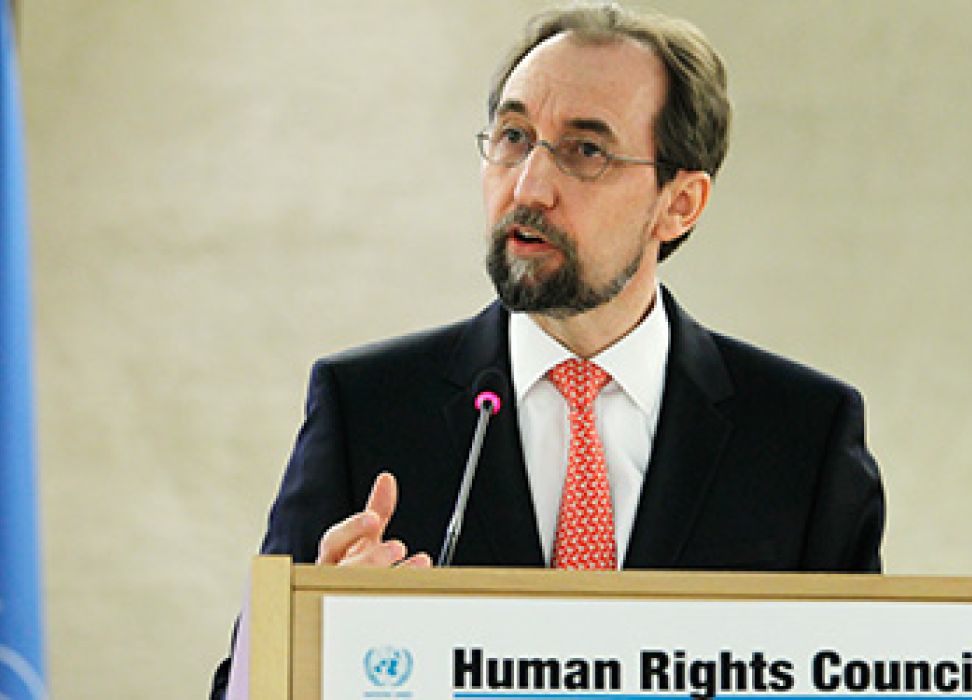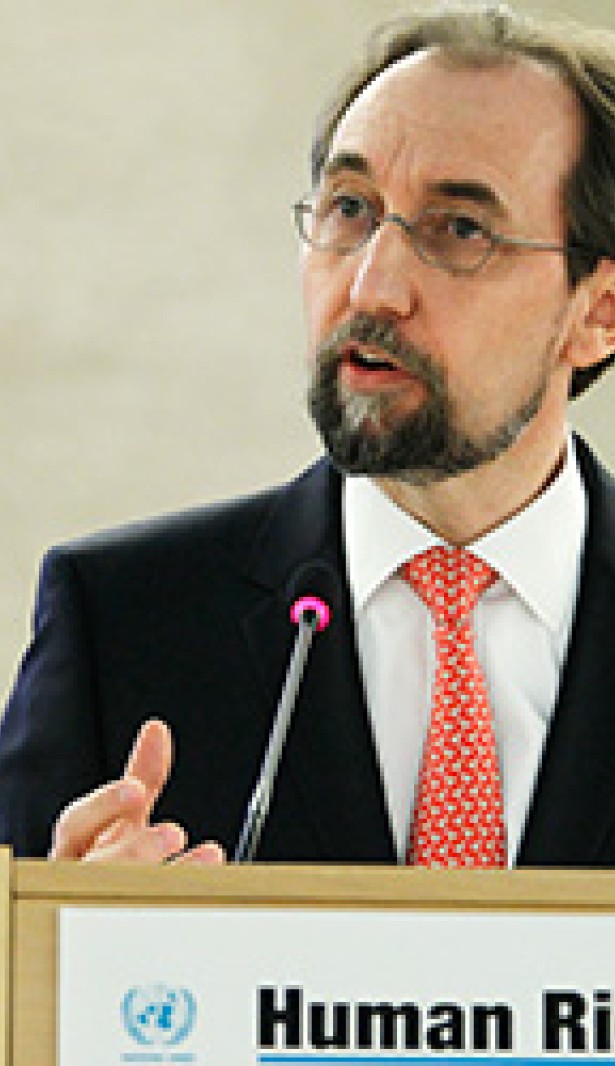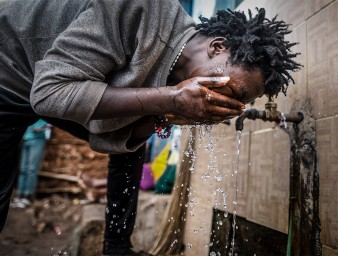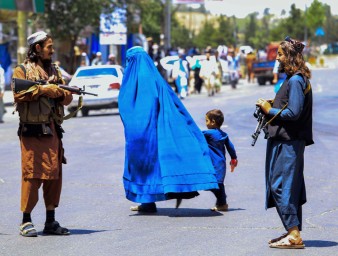High Commissioner calls for end to pressure on human rights
29 February 2016

Likening human rights violations to seismic signals that come before an earthquake, the UN High Commissioner for Human Rights Zeid Ra’ad Al Hussein called on leaders to take actions now to relieve the pressure on rights or face future explosive consequences.
“Unless it is released gradually and soon, through wiser policy making … as the reading of human history informs us, its release, when it comes, will be a colossus of violence and death,” he said.
Zeid made his statement as part of the opening of the 31st session of the Human Rights Council. The month-long event, taking place in Geneva, will see representatives from nearly 200 countries, as well as NGOs and civil society groups, grapple with and make decisions on pressing human rights issues.
The High Commissioner noted how numerous conflicts across the world demonstrated the continued threat to and violations of human rights. The conflicts read like a list of world danger zones: Syria, Libya, Iraq, South Sudan, Yemen. Each country has been plunged into deep crises that have escalated human rights incursions and humanitarian catastrophes, he said.
“Conflicts in Syria, Iraq and elsewhere have unleashed a toxic brew of malevolent forces, including the commission of sickening atrocities and the emergence of human trafficking gangs. These are circumstances that migrants are increasingly fleeing.”
And those fleeing migrants deserve the international community’s sympathy and compassion. "To keep building higher walls against the flight of these desperate people is an act of cruelty and delusion,” Zeid said.
This Council session comes amid two milestones. The first is the 50th anniversaries of the ratification of the International Covenant on Civil and Political Rights and the International Covenant on Cultural, Economic and Social Rights. The two covenants underpin most international human rights law.
The second is the 10th anniversary of the founding of the Council itself. The Council was created in 2006 by the UN General Assembly. Speaking at the opening session, General Assembly President Mogens Lykketoft called the Council a “vital part of the United Nations architecture” and that it has tools and ability to let States “enter into dialogue about human rights issues with other States, inter-governmental and non-governmental actors.”
The Human Rights Council continues through 24 March 2016.
29 February 2016




